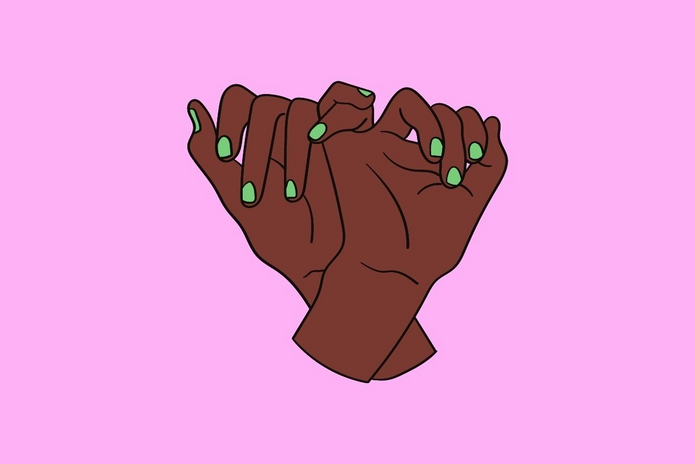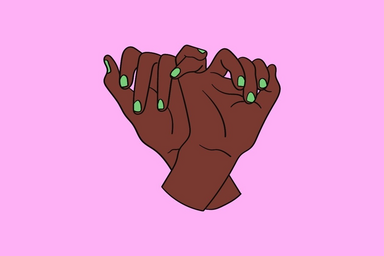A pinky promise is the smallest and most precious moment in the grand scale of life. You look at each other, put forth your pinkies, and seal it like death would rain if you broke that promise. Well, death may not, but technically, blood should. Returning to the making of this “wholesome” moment and milestone in relationships, we discover that a pinky promise is not as kid-friendly as it seems. Research suggests that a “Pinky Promise” originates from Japan, wherein, if it is broken, the pinky is cut off. Not so cute now, right? Although not confirmed, this theory is most connected to our practice. In Japan, it is called yubikiri, which means “finger-cutting”. There have been other citations, but almost all follow the rule that there are severe consequences to breaking a pinky promise.
In today’s world, a pinky promise is common among people of all ages, no matter where they are from, and fortunately, no fingers get cut off. It is still sacred, a bond we form and a promise we keep for sillier reasons. It brings out our inner child and softens the blow of something very important to us. In friendships, no matter how small and silly the ask may be if a pinky promise is involved, it immediately becomes the most important promise we’ve ever made.
Why is it so? Why does such a small gesture bring out so much passion in us that breaking it feels equal to breaking someone’s heart? It could be because, as children, we treasured making a pinky promise because that meant that we were extremely close to the individual that we were making it with. It meant that we found a confidant and a best friend. In a more psychological approach, making a pinky promise is an action that we’re doing. We are entirely aware when we do it. So, it registers in our memory as something that was not just a part of the conversation but a significant element that made the conversation stick out. The phrase “I promise” in the middle of a goofy discussion fades out when we try to recollect the situation, but a pinky promise never would. This might also be because saying “I promise” is frequent throughout the day, but making a pinky promise is not. It is a universal gesture that anyone, anywhere, understands, and we automatically (whether for the good or bad) assume a person to be kind and funloving if they make a pinky promise. Probably because of its connection to our childhood and the many promises we kept because of it. Going back to the ancient practice of cutting fingers out or having terrible consequences for breaking a promise, the utmost seriousness is involved as the consequences demand that.
A pinky promise now transcends language barriers, bridges gaps, and is one of the few gestures of hope that hold true. Back then, it might have been bloody tales of misfortune occurring when a promise is broken, but now, it is one of love, friendship, and childhood wonder that transforms the gruesome pinky promise from the cause of a missing pinky to the cause of a wholesome moment.


